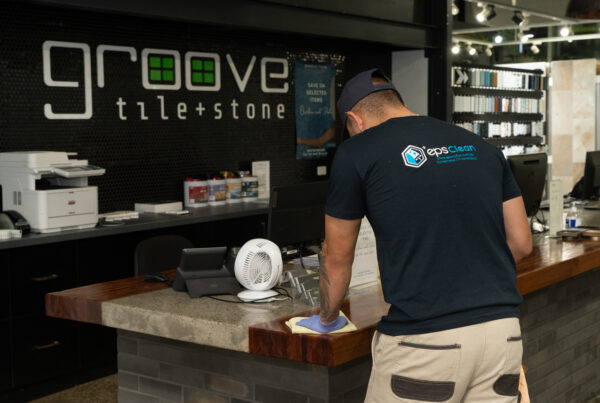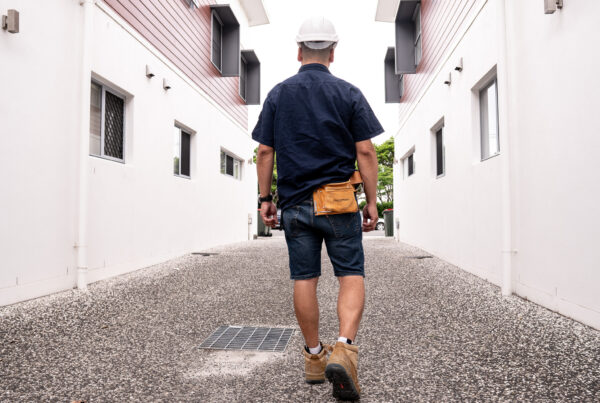“How hard can it be?” Famous last words that have launched a thousand headaches, delayed countless handovers, and turned profitable projects into financial nightmares. If you’re a builder or contractor who’s ever looked at a post-construction mess and thought, “We’ll just handle the cleaning ourselves,” this article might save you from a costly mistake.
The truth is, DIY construction cleaning seems like a no-brainer on paper. You’ve got workers, you’ve got basic cleaning supplies, and you’ve got the site access. What could go wrong? Well, buckle up, because we’re about to dive into the hidden costs that make DIY cleaning one of the most expensive “savings” you’ll ever make.
The Real Price of “Free” Labor
Let’s start with the most obvious hidden cost: labor. Sure, your crew might be on payroll anyway, but here’s the reality check – every hour your skilled tradespeople spend cleaning is an hour they’re not generating revenue on the next project.
The Skill Mismatch Problem
Your electrician knows how to wire a building, but does he know how to properly clean electrical fixtures without damage? Your painter can create a perfect finish, but can he remove construction dust without scratching surfaces? It’s like asking a Formula 1 driver to detail cars – technically possible, but not exactly the best use of their talents.
Consider this: if you’re paying a tradesperson $35-50 per hour to clean, and they’re working at maybe 60% efficiency compared to professional cleaners, you’re actually paying $50-80 per hour for subpar results. That’s before factoring in the opportunity cost of them not being on the next job.
The Time Trap
Construction cleaning takes significantly longer when done by people who don’t specialize in it. What professional cleaners can accomplish in 8 hours might take your crew 16-20 hours, especially when they’re trying to figure out the best approach as they go.
Here’s a real-world example: A 3,000 sq ft commercial space that professionals can clean in one day might take your crew 3-4 days. At $300 per day per worker for a three-person crew, that’s $900 for professionals versus $2,700-3,600 for DIY cleaning. Suddenly, professional cleaning doesn’t seem so expensive.
Equipment: The Expensive Reality
Think you can get away with rental equipment from the hardware store? Think again. Construction cleaning requires specialized equipment that’s expensive to buy and even more expensive to rent for extended periods.
The Equipment List You Didn’t Know You Needed
Professional builders cleaning services requires:
- Industrial vacuum systems (not your standard shop vac)
- High-pressure washers with various attachments
- Specialized window cleaning equipment for removing construction film
- Floor scrubbers for different surface types
- Safety equipment for working at heights
- Air movers for drying and dust control
Renting this equipment for even a week can cost $2,000-4,000, and that’s assuming you know what you need and how to use it properly.
The Learning Curve Cost
Ever tried to use a floor scrubber for the first time? It’s like learning to drive stick shift while blindfolded. Professional equipment requires skill and experience to use effectively. The learning curve isn’t just time-consuming – it’s expensive.
We’ve seen builders spend entire days trying to get industrial equipment working properly, only to achieve results that professionals would consider unacceptable. That’s not just wasted time; it’s wasted money and potential damage to surfaces.
The Insurance Nightmare
Here’s a cost that catches many builders off guard: insurance liability. When your crew is cleaning, especially at heights or with industrial equipment, your insurance exposure increases dramatically.
Claims You Never Saw Coming
- Worker injuries from cleaning-related activities
- Property damage from inexperienced equipment use
- Chemical exposure incidents
- Slip and fall accidents on wet surfaces
Professional cleaning companies carry specialized insurance for these exact scenarios. When you DIY, you’re self-insuring against risks you might not even know exist.
The Documentation Burden
Insurance companies love documentation, and cleaning activities generate a lot of it. Incident reports, safety procedures, equipment maintenance records – it all adds up to administrative overhead that pulls focus from your core business.
Quality Control: The Reputation Risk
Poor cleaning doesn’t just delay handovers – it damages your reputation. In the construction industry, reputation is everything, and one sloppy handover can cost you future projects worth hundreds of thousands of dollars.
The Client Perception Problem
When clients see streaky windows, dusty surfaces, or debris in corners, they don’t think, “Oh, the cleaning crew made mistakes.” They think, “This builder doesn’t pay attention to detail.” Fair or not, cleaning quality reflects on your entire operation.
The Rework Reality
DIY cleaning often requires rework, sometimes multiple times. Each round of rework costs money, delays the project, and increases the risk of damage to finished surfaces. Professional cleaners get it right the first time because they understand the specific challenges of construction sites.
Scheduling Chaos
Construction timelines are complex enough without adding cleaning complications. DIY cleaning often creates scheduling nightmares that cascade through your entire project pipeline.
The Resource Juggling Act
When your crew is cleaning, they’re not available for other tasks. This seems obvious, but the scheduling implications are significant:
- Delayed project starts because crews are tied up on cleaning
- Inefficient resource allocation as you try to balance cleaning with other priorities
- Overtime costs when cleaning takes longer than expected
The Domino Effect
One delayed handover affects every subsequent project. If cleaning delays push your handover back two weeks, every project in your pipeline gets pushed back, creating a scheduling nightmare that can take months to resolve.
The Specialization Advantage
Professional cleaning isn’t just about having the right equipment – it’s about understanding the specific challenges of construction sites and having systems to address them efficiently.
Surface-Specific Knowledge
Different surfaces require different cleaning approaches. What works on concrete might damage wood floors. What’s safe for glass might stain metal fixtures. Professional cleaners understand these nuances and have the products and techniques to handle each surface appropriately.
Dust Management Systems
Construction dust isn’t just inconvenient – it’s persistent and can cause ongoing problems if not properly addressed. Professional cleaners understand how dust behaves, where it settles, and how to remove it completely rather than just moving it around.
The Professional Alternative
At EPS Clean, we’ve seen firsthand the difference between DIY cleaning attempts and professional results. Our commercial cleaning services in Brisbane are designed specifically for the unique challenges of construction sites.
We understand that every hour your project is delayed costs money, and every quality issue affects your reputation. That’s why we focus on efficiency, quality, and reliability – the three things that matter most to builders and contractors.
The Real ROI Calculation
When calculating the cost of professional cleaning versus DIY, consider these factors:
Direct Costs:
- Labor (skilled tradespeople vs. professional cleaners)
- Equipment rental and maintenance
- Supplies and chemicals
- Insurance and liability
- Supervision and quality control
Indirect Costs:
- Opportunity cost of delayed projects
- Rework and correction expenses
- Reputation damage and lost future business
- Administrative overhead
- Scheduling disruptions
The Bottom Line
Professional cleaning typically costs 1-2% of your total project budget, but DIY cleaning can easily cost 3-5% when all factors are considered. More importantly, professional cleaning provides predictable timelines and consistent quality, which are worth their weight in gold in the construction industry.
Making the Smart Choice
The construction industry is built on specialization. You wouldn’t ask a plumber to do electrical work, so why ask your construction crew to do professional cleaning? Every trade has its expertise, and cleaning is no exception.
Smart builders understand that professional cleaning isn’t an expense – it’s an investment in project efficiency, quality control, and business reputation. When you factor in all the hidden costs of DIY cleaning, professional services don’t just make sense; they’re essential for profitable, efficient operations.
Ready to stop losing money on “free” cleaning? The solution is simpler than you think, and the savings are bigger than you might expect. Sometimes, the best way to save money is to stop trying to save money in the wrong places.
After all, in construction, there’s no such thing as a free lunch – or free cleaning.



